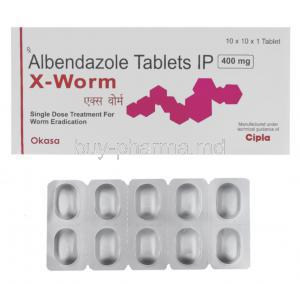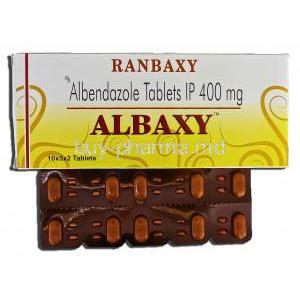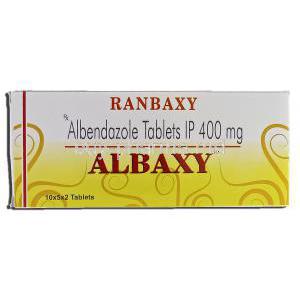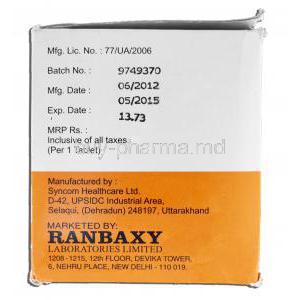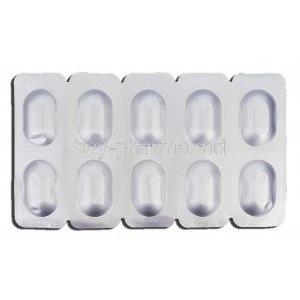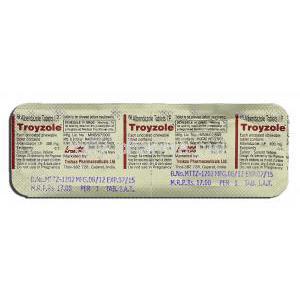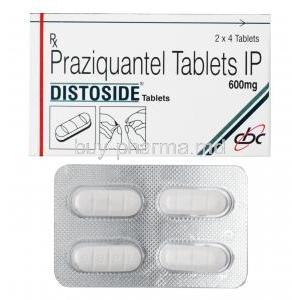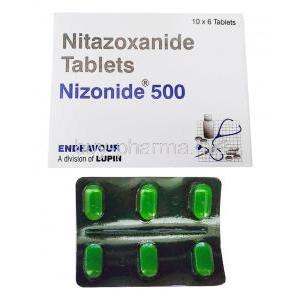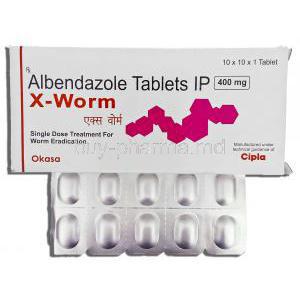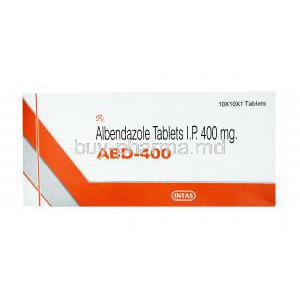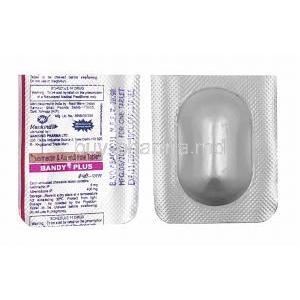Albendazole
- I. Introduction
- II. Composition of Albendazole
- III. How Albendazole Works
- IV. Uses of Albendazole
- V. Off-label Use of Albendazole
- VI. Dosage and Administration
- VII. Side Effects of Albendazole
- VIII. Interactions with Albendazole
- IX. Precautions and Warnings
- X. Special Considerations for Administration
- XI. Storage and Handling Precautions
- XII. Conclusion
I. Introduction
A. Brief Overview of Albendazole
Albendazole is a medication that effectively eliminates parasites in the field of medicine. It was specifically developed to treat kinds of worm infestations, including those caused by
- Pinworms
- Roundworms
- Tapeworms
- Hookworms
B. Historical Development and Approval
In the 1970s, SmithKline Pharmaceuticals created Albendazole, acknowledged by the World Health Organization (WHO) as a medication for public health. As a result, it is easily accessible in countries across the globe.
C. Common Applications and Treatment Scope
Albendazole is commonly used to address both cases and larger-scale outbreaks of worm infestations. This drug has proven effective in controlling worm infestations in humans and animals. Additionally, it plays a role in mass deworming campaigns, especially in regions where parasitic worms present significant health risks.
II. Composition of Albendazole
A. Chemical Structure and Properties
The anthelmintic properties of Albendazole are attributed to its chemical structure, which includes a benzimidazole nucleus. Due to its lipophilic characteristics, this structure enables Albendazole to penetrate the cuticles of parasitic worms effectively. Additionally, Albendazole's chemical stability ensures its effectiveness when taken orally2.

B. Active and Inactive Ingredients
Albendazole's main component is the compound that directly fights against worms. However, Albendazole tablets contain additional ingredients like
- Microcrystalline cellulose
- Corn starch
- Magnesium stearate
These ingredients assist in delivering the medication but do not affect its effects.
III. How Albendazole Works
A. Mechanism of Action Against Parasites
Albendazole interferes with the synthesis of proteins in parasites, the tubulin protein. This interference disrupts the transportation and nutrient absorption mechanisms within the worm's cells, resulting in energy depletion and eventual immobilization. Due to losing functions, the parasites perish, eliminating the infestation1.

B. Time Frame of Efficacy
The effectiveness of Albendazole can differ based on the seriousness and type of infection. While some patients may experience improvements within a few days after taking it, it may take longer to eliminate the parasites. It is essential to adhere to the recommended treatment plan to ensure the elimination of the parasites.
IV. Uses of Albendazole
A. Primary Uses: Treatment of Parasitic Worm Infections
Albendazole is a used drug that effectively treats various parasitic worm infections. It is primarily prescribed for eliminating pinworms, roundworms, hookworms, and tapeworms. Albendazole's potency makes it an essential choice in combating these invaders.
- Pinworms (Enterobiasis) are a problem in children and adults, but Albendazole is a powerful drug that can eradicate them.
- Roundworms (Ascariasis) Albendazole disrupts their metabolic processes, ultimately eliminating these parasites.
- Hookworm infestations (Ancylostomiasis, Necatoriasis), Albendazole immobilizes the parasites. Aids their removal from the host's body.
- Tapeworm infections (Taeniasis), relieving associated symptoms.
B. Secondary Uses: Less Common Parasitic Conditions
In addition to its known uses, Albendazole has proven effective in treating less common parasitic conditions. It can effectively combat infections such as Giardiasis and Trichinosis. It addresses Echinococcosis and Neurocysticercosis, which are conditions caused by cyst-forming parasites invading the body. Moreover, it has shown results in treating systemic infections, like Toxocariasis and Filariasis providing therapeutic benefits even in these complex cases.
C. Global Use and Variations by Region
Albendazole has impacted public health worldwide, especially in developing countries. It plays a role in mass deworming campaigns, effectively addressing the widespread problem of parasitic infestations.
- Sub-Saharan Africa Albendazole is instrumental in combating diseases like Lymphatic Filariasis and Onchocerciasis that's prevalent in the region.
- South Asia, it serves as a weapon against Ascariasis and Trichuriasis, commonly found there.
- South America Albendazole is often the choice for controlling conditions such as Chagas disease and Echinococcosis.
These regional differences highlight the spectrum effectiveness of Albendazole and emphasize its significance in promoting global health.
V. Off-label Use of Albendazole
A. Exploration of Non-standard Applications
Albendazole is mainly used to treat infections, but its effectiveness has led to research on its potential use in other areas. Interestingly it has been tested for cancer treatment due to its ability to inhibit the growth of blood vessels. Additionally, it is being studied for applications in non-parasitic conditions, like Polycystic Liver Disease2.
B. Research and Clinical Trials Supporting Off-label Use
Clinical trials have played a role in discovering new potential applications for Albendazole. In the field of oncology, for example, preclinical studies have indicated that Albendazole may hold promise as a therapy in colorectal and hepatocellular carcinoma. However, further comprehensive research and controlled trials must confirm these findings and understand Albendazole's potential in off-label uses1.
VI. Dosage and Administration
A. Standard Dosage Guidelines
The recommended amount of Albendazole usually falls between 400 and 800 milligrams per day, split into two doses. However, the exact dosage may differ based on the type of parasitic infection being treated. Patients must follow the dosage precisely to obtain the best possible therapeutic outcomes.

B. Variations in Dosage for Different Conditions
The amount of Albendazole needed may vary depending on the condition being treated3
- Enterobiasis (Pinworm infection) a single dose of 400 mg is typically recommended.
- For Neurocysticercosis, the usual dosage is 800 mg daily for 28 days. A 14-day break follows this and is then repeated for two cycles.
- For echinococcosis, it is common to prescribe 800 daily divided into two doses. This treatment cycle lasts for 28 days with a 14-day break in between. It is usually recommended to undergo three processes.
Please note that these dosages are subject to variation and should be discussed with a healthcare professional.
C. Instructions for Administration
Albendazole is typically consumed with meals that have a high-fat content to improve absorption. It's important to swallow the tablets without crushing or chewing them. Additionally, it is advisable to stay hydrated by drinking several fluids during the treatment period to avoid dehydration, which can be a common issue with certain parasitic infections.
VII. Side Effects of Albendazole
A. Common Side Effects: Frequency and Severity
Like medications, Albendazole can cause specific side effects. The frequently reported ones are
- Abdominal pain
- Nausea or Vomiting
- Headache
- Dizziness
Generally, these side effects are mild. Tend to diminish as the body gets accustomed to the medication. However, if these symptoms persist or worsen over time, it is advisable to seek medical attention.
B. Rare But Serious Side Effects
While it is uncommon, Albendazole can potentially lead to side effects such as
- Allergic reactions
- Significant skin rashes
- Abnormal bleeding or bruising
- Alterations in vision
If any of these symptoms manifest, it is crucial to seek medical help.
C. Long-term Impact and Potential Risks
Although the immediate effects of Albendazole are widely known, its potential long-term consequences remain uncertain. However, extended usage could lead to liver complications, blood abnormalities, or hair thinning. It is advisable for individuals undergoing treatment to undergo regular monitoring of their blood counts and liver function.

VIII. Interactions with Albendazole
A. Drug Interactions: What to Avoid
Some medications can interact with Albendazole affecting how well it works or causing effects. For example, anticonvulsants like carbamazepine and phenytoin may lower the levels of Albendazole in the blood, which can reduce its effectiveness. You must inform your healthcare provider about any medications you're taking to avoid these potential interactions.
B. Food and Lifestyle Interactions
Consuming meals high in fat can improve the absorption of Albendazole, making it more effective. However, it is advisable to avoid alcohol as it could worsen the liver toxicity associated with this medication. Furthermore, if you engage in activities that require alertness, such as driving, it is essential to exercise caution due to the possibility of experiencing dizziness as a side effect.
C. Effects on Medical Tests or Procedures
Let your healthcare providers know if you are taking Albendazole before undergoing any liver function tests. This is because Albendazole can potentially affect the results of these tests causing them to be inaccurate.
IX. Precautions and Warnings
A. Contraindications: When Albendazole Shouldn't Be Used
Although Albendazole has been used, there are certain situations where it should not be used. This includes people known to have allergies to Albendazole or similar medications and patients with liver problems or significant issues with their bone marrow function. It's essential to be cautious when treating individuals with a history of seizures or retinal damage because Albendazole can potentially affect the system and eyes.
B. Necessary Precautions for Certain Health Conditions
Patients who have health conditions should be careful when using Albendazole. Individuals with liver disease, blood disorders, or bone marrow suppression should only take this medication under the guidance of a healthcare professional. They may need to undergo blood tests to monitor their condition during the treatment process.
C. Potential Risks to Sensitive Populations
It is essential to exercise caution when using Albendazole in groups of individuals who may be more sensitive. This includes people with a weakened system or kidney problems. Extended use of this medication in populations may carry potential risks, such as a higher susceptibility to infections or additional kidney damage. It is crucial to monitor their health in these situations.
X. Special Considerations for Administration
A. Administration to Elderly Patients
Careful adjustment of the dosage and close monitoring may be necessary for patients as they are at a higher risk of experiencing adverse reactions. It is essential to consider that the absorption and elimination of Albendazole can be affected by age-related liver, kidney, or heart function declines, which might require dose modifications.

B. Administration to Pregnant Women and Nursing Mothers
Albendazole falls under the Category C classification for pregnancy medications indicating that its usage should be carefully considered after weighing the benefits against the associated risks. It has the potential to cause harm to the developing fetus. It is crucial to have a discussion about this with a healthcare professional. For breastfeeding mothers, it's worth noting that Albendazole can be excreted in breast milk as a measure breastfeeding should be temporarily discontinued during treatment and for at least five days after completing the prescribed therapy.

C. Administration to Children
Although Albendazole is suitable for children young as one year old, it is crucial to calculate the dosage accurately according to their weight. Additionally, children may need frequent monitoring for possible side effects, like gastrointestinal issues and headaches.

D. Guidance in Cases of Overdosage
If someone takes much of this medication, immediate symptomatic and supportive care must be provided. If the overdose occurred recently, inducing vomiting or performing lavage might be considered to prevent further absorption. It is crucial to monitor liver function as there is a potential risk of liver damage.
XI. Storage and Handling Precautions
A. Recommended Storage Conditions
Albendazole should be stored in a dry place at room temperature ranging from 20 to 25 degrees Celsius. It's essential to keep it from light and moisture and ensure it is placed out of the reach of children and pets to prevent accidental ingestion.
B. Safe Disposal Methods
It's important not to flush or pour unused or expired Albendazole down the toilet or drains unless you've been specifically instructed to do. Instead, follow disposal methods according to local waste disposal guidelines or consider participating in a take-back program.
C. Handling Precautions for Caregivers and Patients
Both patients and caregivers must ensure they wash their hands thoroughly before and after handling Albendazole. It is also advisable to avoid contact with crushed or broken tablets, as the medication can be absorbed through the skin.
XII. Conclusion
A. Recap of Key Points
Albendazole is a medication that effectively treats parasitic worm infections and has potential off-label uses. It is generally well tolerated. Like any medication, it can have side effects. Careful administration is necessary for sensitive populations; specific storage and handling precautions should be considered.
B. Importance of Medical Guidance in the Use of Albendazole
Although Albendazole is a tool in fighting parasitic diseases, it is crucial always to seek guidance from a healthcare professional. They can assess its suitability for your situation, customize the dosage according to your needs, and watch for any possible side effects.
C. Future Developments and Research in Albendazole Use
Ongoing research is being conducted on Albendazole to explore its applications in different types of cancers and other non-parasitic diseases. These studies aim to discover therapeutic possibilities for this versatile drug solidifying its importance in global healthcare.
Albendazole FAQ
- What are the side effects of Albendazole?
- What is an Albendazole tablet?
- What is the typical dosage of Albendazole?
- What is the typical Albendazole dose for adults?
- What does 400 mg of Albendazole entail?
- Can humans take Albendazole?
- How does Albendazole work in humans?
- Albendazole vs Mebendazole - what's the difference?
- Is Albendazole effective for pinworms?
- Where can I buy Albendazole?
- How much does Albendazole cost?
- What is the Albendazole dosage for pinworms?
- Is Albendazole available at Walmart?
- What is the treatment procedure with Albendazole?
- What are the uses of Albendazole?
- How should Albendazole tablets be used?
- What is Albendazole medicine?
- What is the typical single dose of Albendazole for adults?
- How long does it take Albendazole to kill worms?
- What is the cost of Albendazole on GoodRx?
- Is Albendazole syrup available?
- What is Albendazol Quinfamida?
- Can adults use Albendazole tablets?
- Is Albendazole for sale without prescription?
- Is Albendazole effective for treating tapeworms?
- What's the difference between Albendazole and Fenbendazole?
- What are the reviews on Albendazole?
- Can Albendazole be used for goats?
- What is Albendazole Oral Suspension IP?
- Are there any known interactions with Albendazole?
- What is the brand name for Albendazole?
- Is Albendazole used as a dewormer?
- What does Albendazole 400 mg tablet entail?
- Where can I find Albendazole near me?
- Can Albendazole be used for chickens?
- Can Albendazole be used for cats?
- Are Albendazole and Mebendazole available over the counter?
- Are there alternatives to Albendazole?
- How does Albendazole compare to Ivermectin?
- How does Albendazole compare to Mebendazole?
- Are there any warnings associated with Albendazole?
- What is the recommended Albendazole tablet dose for adults?
- What can be done if Albendazole is not working for pinworms?
- What is the pediatric dose of Albendazole?
- Can Albendazole be used for chickens?
- Are there alternatives to Albendazole?
- Is there a generic form of Albendazole?
- Is Albendazole available in the USA?
- Can Albendazole be used for treating Giardia?
- Is Albendazole available in liquid form?
- How does Fenbendazole compare to Albendazole?
- Can Albendazole be replaced with Mebendazole?
- Can Albendazole be used for treating Giardia?
- How should Albendazole tablets be taken?
- What is Albendazole Valbazen?
- Is Albendazole safe to use during pregnancy?
- What are the risks of Albendazole use during pregnancy?
- What is the price of Albendazole in the USA?
- Can you buy Albendazole online?
- Is Albendazole suitable for adults?
- Can Albendazole be taken with alcohol?
- Which is better: Albendazole or Mebendazole?
- Can Albendazole be purchased at Tractor Supply?
- How is Albendazole used for the treatment of pinworms?
- What forms does Albendazole come in?
- What are the contraindications for Albendazole?
- Can Albendazole be crushed?
- How does Albendazole compare to Pyrantel Pamoate?
- Is Albendazole used for sheep?
- Is Albendazole available in Mexico?
- What are the indications for Albendazole?
- What is the combination of Albendazole and Ivermectin used for?
- What is the price of Albendazole at Walmart?
- Is Albendazole used for treating hookworm?
- Is there an Albendazole manufacturer coupon?
- Is Albendazole used for horses?
- Is Albendazole safe?
- Where can you buy Albendazole and Mebendazole?
- How long does it take for Albendazole to work?
- Should Albendazole be taken with or without food?
- How should Albendazole be taken?
- Can Albendazole be used for scabies?
- What is the combination of Albendazole and Praziquantel used for?
- What are the uses of Albendazole and Ivermectin tablets?
- How does Albendazole compare to Metronidazole?
- How does Albendazole compare to Praziquantel?
- Which is better for pinworms: Albendazole or Mebendazole?
- How does Albendazole compare to Pyrantel Pamoate for pinworms?
- How does Praziquantel compare to Albendazole?
- Are there any side effects of Albendazole discussed on Reddit?
- Is there a substitute for Albendazole?
- What is the structure of Albendazole?
- Who manufactures Albendazole?
- What is the mode of action of Albendazole?
- What is Albendazol Quinfamida used for?
- Is Albendazole used in veterinary medicine?
- What is the veterinary dosage for Albendazole?
- What is Albendazole Oral Suspension IP Zentel?
- What are the ingredients of Albendazole?
- What is in the Albendazole package insert?
- What is Albendazole powder?
- What is the dosage for Albendazole plus Ivermectin?
- What is the deworming dosage of Albendazole for dogs?
- What is the dosage of Albendazole for goats?
- What is the half-life of Albendazole?
- How does Albendazole work?
- What class of drugs does Albendazole belong to?
- What are Albendazole chewable tablets?
- What is a brand name for Albendazole?
- What kind of worm medicine is Albendazole?
- Is Albendazole a prescription medication?
- Can Albendazole be used for animals?
- Will Albendazole kill tapeworms?
- Is Albendazole harmful?
- Where can I buy Albendazole in the Philippines?
- Can Albendazole kill pinworms?
- How does Albendazole work?



